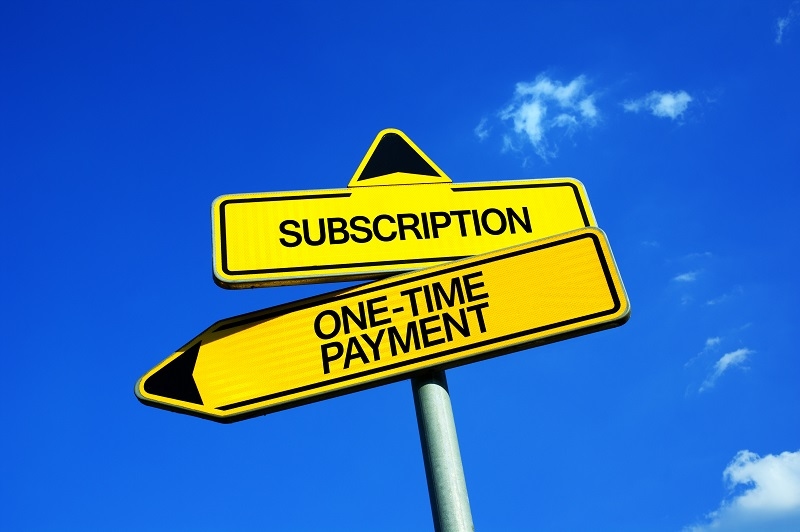
In today's digital-first existence, it feels as though there is a subscription for everything. From streaming TV shows and movies, fitness apps, music, news outlets, and even food deliveries—our monthly expenses are adding up more than ever. According to recent surveys, the average American is dishing out over $200 a month in subscriptions. That is nearly $2,400 annually, without even realizing it.
But the good news is this: you don't have to cancel everything to save. You simply need smart suggestions on how to reduce subscription costs without sacrificing what you love. With some planning, you can cut out wasteful spending, switch to low-cost alternatives, and maximize what you keep.
This blog will cover actionable tips to help you manage subscriptions smartly, recognize the best free streaming options, cancel unused subscriptions, find the best free alternatives streaming, and share genius cutting monthly bill hacks so that you can keep up with your lifestyle while trimming the fat.
The subscription economy is designed to be convenient but also easy to overlook. You sign up for a trial, forget to cancel, or keep multiple rival services without realizing the duplication. Companies are counting on this. Much of budget-friendly subscription management is, therefore, simply being more aware of what you're paying for.
Some of the most frequent reasons bills get out of control include:
The initial step to figuring out how to save money on subscriptions is to identify where the wastage is.
Start with a full review of what you’re paying for each month. Go through your bank statements, credit card bills, and app store charges. You’ll likely be surprised at how many little charges are adding up.
This is where canceling unused subscriptions is your best money-saving buddy. If you haven't used an app, watched a platform, or used a service in more than a month, it's time to cancel it.
Subscription tracking software like Rocket Money or Truebill makes this process easier by scanning your accounts and giving you a list of recurring charges. By doing so, it is easy to spot forgotten memberships and cancel unused subscriptions before they start bleeding your wallet again.
Not every service you use needs a paid subscription. In working out how to cut costs on subscription fees, the easiest step is replacing subscriptions with the best free alternatives, streaming or otherwise.
Some of the examples are as follows:
Streaming TV & Movies: Instead of paying for multiple services, try free services like Tubi, Pluto TV, or Freevee. They're ad-supported but completely free.
Music: Dump Spotify Premium and switch to ad-supported free versions of Spotify, Pandora, or YouTube Music. You'll listen to ads, but the savings matter.
News & Magazines: Articles are mostly free online, or you can read premium sites free through your public library's digital services.
Fitness: Instead of Peloton or Apple Fitness+, use YouTube channels with free guided workouts.
By strategically utilizing the best free streaming alternatives, you can stream and save.
Rotating subscriptions instead of stacking is one of the smartest monthly bill cut hacks. For instance, subscribe to Netflix for two months and binge-watch your favorite content, cancel it, and switch to Hulu for the next two months.
This means you're only paying for one service at a time, instead of attempting to juggle four or five. Not only will this approach save you cash on streaming, but it will also keep your entertainment fresh without the ongoing monthly drain.
If you’re wondering how to reduce subscription costs without sacrificing access, family or group plans are an excellent solution. Most streaming and app services offer shared accounts at a discounted rate per person.
For example:
Subscription sharing in legitimate family plans is a subscription management cost-saving strategy that reduces costs without reducing access.

Don't pay retail if you don't need to. Most services offer steep discounts for those who qualify:
Corporate perks: Some employers have agreements with services to offer free or discounted access.
These discounts are undervalued monthly bill slashing hacks that can instantly reduce subscriptions in price.
You don't always require the premium version. For instance:
Downgrading to a lower level is one of the simplest types of budget-friendly subscription management. You still keep the service but eliminate unnecessary extras.
Calendar reminders are another overlooked method of how to reduce subscription costs. Set a reminder before free trial expirations, or set recurring check-ins every quarter to review what you're paying for. This helps you cancel unused subscriptions before they pile up into surprise bills.
Bundling can also be a smart decision. For example, Disney+, Hulu, and ESPN+ are offered as a bundle at a lower price than paying for them separately. Similarly, your phone carrier may include free subscriptions to Netflix, HBO Max, or Apple TV+.
These bundles can be a powerful part of budget-friendly subscription management. Just make sure you’re actually using all the services in the bundle; otherwise, it’s not a real saving.
Not every subscription needs to be year-round. If you only watch NFL games, sign up for a sports streaming service for the season, then cancel. If you only use a language-learning app when you travel, try turning it on for a couple of months rather than keeping it for the whole year. This kind of seasonal technique is another monthly bill hack that allows you to get value for less.
You'd be surprised, but most companies will give you a discount if you just call and ask. Streaming services, gyms, and even news subscriptions sometimes offer promotional pricing just to keep you from canceling.
If you've been a long-standing subscriber, a quick call to customer service may cost you less for streaming or reduce the cost somewhere else.
No less crucial to mastering the art of reducing subscription costs is mastering the art of changing your mindset. Subscriptions are designed to be painless and low, but overall, they may be equal to a car payment or a significant portion of your rent.
By shifting your perspective—treating subscriptions as part of your core budget—you gain better control. You’ll see them less as minor conveniences and more as ongoing financial commitments. This makes it easier to prioritize what really matters and cancel unused subscriptions guilt-free.
To actually be in a position to master affordable subscription management, make it a tradition, not an occasional sweep. Just as you would review your budget or your investments, take a look at your subscriptions from time to time. Ask yourself:
Over time, these minor checks become a habit and find reflection in savings in the long run.
Subscriptions are convenient, but if not monitored, they drain hundreds or thousands of dollars from your yearly budget. The secret is not to cut them all out, but to know how to strategically cut back on subscription costs. Through inspecting what you're subscribing to, replacing some with the top free alternative streaming, cycling, or reducing plans, and using clever cutting monthly bill hacks, you can enjoy your preferred services without draining your wallet dry.
This content was created by AI